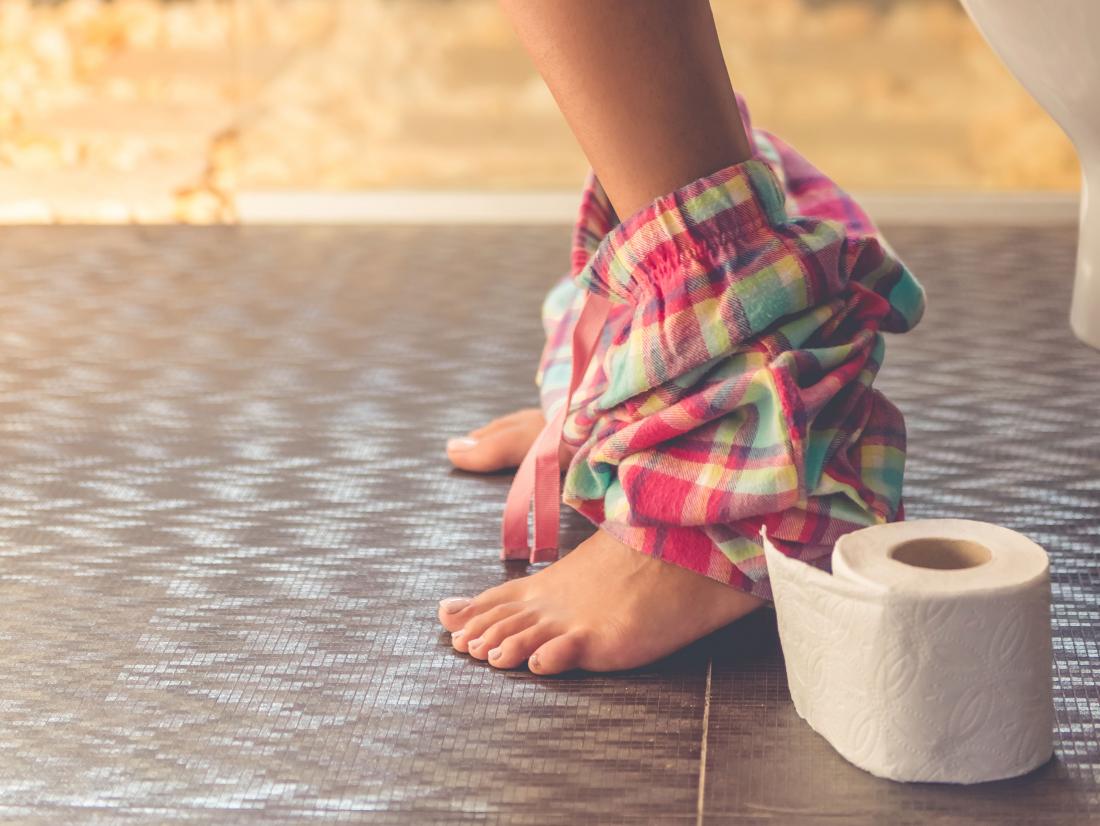Diabetes can lead to persistently high blood sugar levels, which may cause nerve damage that can result in constipation. In some cases, a person’s diet or medication may also cause constipation.
The symptoms of constipation can be uncomfortable, but there are steps that people can take to relieve them.
Read on to learn more about the causes, symptoms, and treatment of diabetes-related constipation.
What is the link between diabetes and constipation?

Research suggests that people with diabetes have a higher risk of constipation.
In a 2017 article exploring the link between diabetes and constipation, the authors note that some studies suggest that up to 60% of people with diabetes report experiencing constipation.
However, they point out that other researchers estimate that this condition affects 11–56% of people with diabetes.
The authors conclude that people living with type 1 or 2 diabetes have a higher risk than the general population of developing chronic constipation.
Diabetic neuropathy and gastroparesis
People living with diabetes may develop diabetic neuropathy. Diabetic neuropathy is nerve damage that can affect different parts of the body, including the digestive tract.
Diabetes-related nerve damage may affect the vagus nerve, which controls the movement of food through the digestive tract.
When this occurs, a person’s bowels cannot process solid waste as effectively. As a result, a person may become constipated. Damage to the vagus nerve can also cause a condition called gastroparesis, which people sometimes refer to as delayed gastric emptying.
Learn more about diabetic neuropathy here.
Diabetes and diet-related constipation
A person with diabetes may develop constipation due to their diet.
It is important that people with diabetes eat a well-balanced diet to prevent blood sugar spikes and maintain a healthy body weight. A healthful, varied diet that contains plenty of fiber can also help people with this condition prevent constipation.
Learn more about how to eat well with diabetes.
Diabetes medication and constipation
Certain medications for diabetes and related conditions may cause constipation.
A person should speak to a doctor if they suspect that a particular medication is causing their constipation. The doctor can confirm whether the medication is the cause, and they may be able to suggest alternative treatments or dosages if necessary.
Symptoms

Symptoms of diabetes-related constipation include bloating, difficulty passing stool, and hard or lumpy stools.
A person with diabetes-related constipation may experience alternating constipation and diarrhea.
Nerve damage can cause the intestines to move food either too quickly, which can result in diarrhea, or too slowly, which can lead to constipation.
Common symptoms of constipation include:
- hard or lumpy stool
- difficulty passing stool
- the feeling that the bowel is not empty
- bloating
- infrequent bowel movements
If a person experiences any of the following symptoms, they should seek medical attention:
Are laxatives safe for people with diabetes?
Laxatives are a potential treatment option for people with diabetes-related constipation. However, some laxatives may cause a spike in blood sugar, which might make them unsuitable for people with diabetes.
Also, manufacturers do not necessarily create laxatives for long term use, so it may not be safe or effective to use them for extended periods.
If a person wishes to use laxatives, they should ask their doctor which types are safe to use regularly.
Laxatives that are safe for most people include:
- bulk-forming laxatives
- lubricants
- osmotic laxatives
- stool softeners
A person with diabetes should always talk to their doctor before taking laxatives.
Treatment and home remedies
A person with diabetes may not need to see a doctor about constipation. They can first take several steps to try to treat their constipation at home. These include:
- drinking more water
- eating more fiber
- doing more exercise
Gradually, these steps may naturally encourage bowel movements and help a person pass stool.
In addition, it is important for people with diabetes to manage their blood sugar levels. A person with diabetes will be less likely to develop constipation if they can manage their blood sugar levels effectively and consistently. By doing this, they will also reduce their risk of having other symptoms and complications, including nerve damage.
When to see a doctor

A person should seek immediate medical attention if they notice any blood in their stools.
Occasional constipation is generally not a cause for concern. A person having trouble passing stool can try some natural and over-the-counter remedies before seeing a doctor.
If at-home treatments are not working, or constipation lasts for longer than a few days, a person should see their doctor.
If a person has blood in their stool or experiences other related symptoms, they should seek immediate medical attention.
A doctor may prescribe stronger laxatives or other therapies. In more severe cases, they may recommend procedures and treatments to remove any blockages.
Summary
Over time, high blood sugar levels due to diabetes can damage a person’s nerves. Nerve damage that affects the digestive tract may cause a person to have diarrhea, constipation, or both.
Diabetes-related nerve damage and subsequent constipation may be preventable through the effective management of blood sugar levels. Lifestyle choices, such as eating a healthful, high fiber diet and exercising regularly, can also help prevent constipation.
